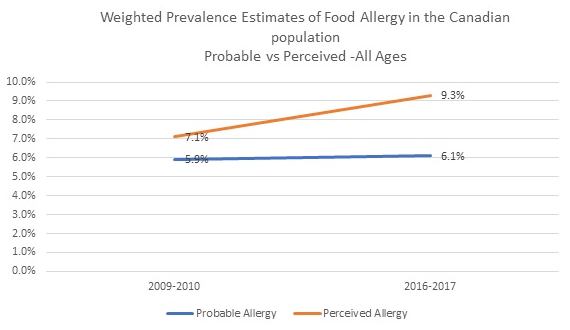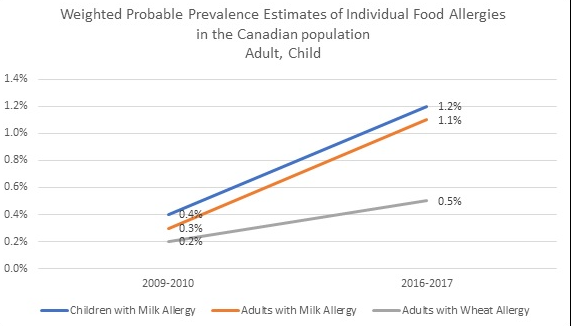Editor:
Brandon Sweet
University Communications
bulletin@uwaterloo.ca
Andrea Edginton named Director of the School of Pharmacy
A message from the School of Pharmacy.

Andrea Edginton (BSc and PhD, University of Guelph) has been named the next Hallman Director of the School of Pharmacy. Professor Edginton is a globally recognized leader in physiologically-based pharmacokinetic (PBPK) modeling and simulation, specializing in dose-exposure extrapolation to special populations. She was a founding member of the School of Pharmacy and currently serves as the School’s Associate Director, Graduate Studies and Research (2018) and member of the Executive leadership team (2015).
Innovation and knowledge translation are central to Professor Edginton’s vision for the School and her own entrepreneurial endeavors bring a seasoned awareness of their importance. She has a strong research program and has worked hard to cultivate a barrier-free research culture within the School.
Edginton is excited by the prospect of leading the School’s outstanding team.
“Over the last 12 years, I have witnessed exceptional faculty and staff who have been dedicated to providing students and trainees with an education that sets them apart,” she says. “We have built the most innovative pharmacy school in Canada while maintaining a collaborative, supportive environment. I am thrilled to lead this outstanding team as we build on this culture of excellence.”
Throughout her career at the University of Waterloo, Edginton has been active with the Association of Faculties of Pharmacy and the Canadian Council for Accreditation of Pharmacy Programs (CCAPP) and looks forward to bringing her unique perspective to working with professional and regulatory organizations including the Ontario College of Pharmacists, Ontario Pharmacists Association, Canadian Pharmacists Association and Canadian Society of Hospital Pharmacists.
Professor Edginton will be Waterloo Pharmacy's third Hallman Director. She succeeds David Edwards, who has held the position since 2011. Her four-year appointment begins on January 1, 2021.
Read the full story on the School of Pharmacy website.
New research about food allergy prevalence in Canada

By Beth McLay, University of Waterloo Survey Research Centre. May is Food Allergy Awareness Month in Canada.
According to Food Allergy Canada, more than 2.6 million Canadians self-report that they have at least one food allergy. Fueled by stories in the media and increased awareness of food allergies in schools and public places, food allergy prevalence in Canada is thought to be on the rise. But does perception equal reality?
A team of researchers from the Allergy, Genes and Environment (AllerGen) Network, co-led by Dr. Ann Clarke from the University of Calgary and University of Waterloo professor and medical geographer, Susan Elliott, fielded a national population-based research study, Surveying Prevalence of Food Allergy in All Canadian Environments: SPAACE to SPAACE. The study, the largest survey to date on the prevalence of food allergies in Canada, compares data from an earlier survey conducted by the same researchers to assess the rates of food allergy over time. The study was funded in part by Health Canada.
The researchers employed the Survey Research Centre (SRC) at the University of Waterloo to develop and administer a Canada-wide random telephone survey and included a mail out of pre-notification letters and incentives. Using their on-campus call centre, the SRC collected data from just under 6,000 households, representing over 15,000 individuals, across all Canadian provinces and territories. Vulnerable populations: new, Indigenous, and lower-income Canadians were oversampled using targeted Canadian Census data.
Food allergy was defined as:
- Perceived: any individual who was reported, by the household respondent, to have any food allergy or
- Probable:any individual who was reported, by the household respondent, to have symptoms/signs compatible with a convincing history and/or a physician diagnosis of a food allergy.
The survey was conducted between February 2016 and January 2017 and the data compared to the research group’s 2010-2011 study (SPAACE). In addition to estimating the number of Canadians affected by food allergy overall, the survey provided data on the nine foods most commonly associated with allergies: peanut, tree nut, fish, shellfish, sesame, milk, egg, wheat and soy. The results of the study were recently published in the Journal of Allergy and Clinical Immunology: In Practice. Some of the key findings from the study are:
- Overall prevalence of probable food allergy has remained stable. 6.1 per cent of Canadians report that they have a probable food allergy. This is in line with the 2010-2011 results (see figure 1).
- There is an increase in probable milk allergy among children, and an increase in probable milk and wheat allergy among adults (see figure 2). According to Dr. Clarke, “It’s possible that these increases relate to recent trends toward eliminating milk and gluten from one’s diet, which can produce symptoms of allergy when these nutrients are eventually consumed.”
- There has been an overall increase in perceived food allergy prevalence. 9.3 per cent of Canadians report that they have a perceived or self-reported food allergy. This is an increase from 7.1 per cent in 2010-2011. Dr. Elliott suggests that “Canadians may have become more aware of food allergies in general, leading to an increase in self-reporting, some of which may not be a manifestation of a true clinical allergy.”


This important research highlights that while there has been an increase in the proportion of Canadians who perceive that they have a food allergy, the actual proportion of Canadians with a probable food allergy has remained largely unchanged over time. For more detailed information about the methodology and results of this study, visit https://www.jaci-inpractice.org/article/S2213-2198(19)30912-2/fulltext.
The Survey Research Centreoffers survey research services ranging from survey design or methodology consultations for research grant applications, to a complete package of study and survey design, data collection and top-line analysis. It provides full telephone survey services, online survey hosting, survey programming and mail survey services. A free one-hour consultation on survey design and methodology is available to University of Waterloo faculty, staff and students.
Arguing on the Internet? Try these online conflict management workshops instead
By Elizabeth Robertson.

For the first time in its history, the Conflict Management Certificate Program (CMCP) is being offered online. The program is based out of Conrad Grebel University College’s Peace and Conflict Studies department, and offers workshops in a variety of conflict management and mediation practices. Participants are invited to attend individual workshops for professional development or personal interest, or to work toward a certificate in Conflict Management and Mediation or Conflict Management and Congregational Leadership.
Spring workshops have transitioned to an online format to facilitate learning from home in accordance with COVID-19 physical-distancing policies. Susan Baker, who manages the CMCP, noted that the pandemic was the impetus to bring the program’s interactive workshops online. “Engaging in the inaugural Conflict Coaching workshop opened my eyes to the potential of online learning.”
The first online training session took place in early April. One of its participants reflected, “I wasn’t sure the online format would be effective for me, but I was pleasantly surprised. At no time did I feel that this format was ‘less than’ the classroom workshop version. In fact, I found it suited my learning style preferences even better.” Features like virtual breakout sessions rooms aided the interaction. Another participant found the course to be “engaging and enriching” and “will definitely be interested in more online delivery options to balance professional, personal, and geographic restrictions.”
“Several people commented on the benefit of avoiding the Highway 401 commute, while others have added a second workshop as they no longer have to budget for hotels and airfare,” said Baker. The online option saved one person a four-hour daily commute.
The workshops are drawing attention across Canada, leading a participant from Yellowknife, Northwest Territories, to share that the opportunity “was fantastic. I hope these will continue.” The quickly-filling workshops have also drawn international participation from the United Kingdom and the USA, and elicited interest as far as Japan.
Some of the sessions have already filled up, as people who would not normally have the opportunity to travel to Grebel are taking advantage of this interactive online learning. The CMCP has added another section of Understanding Conflict Foundations in June (mornings of June 9, 10, 16 and 17) because the May dates reached capacity. Future workshop topics include Informal Mediational Skills for Pastors and Lay Leaders on the mornings of June 3, 4, 11 and 12, and the May 13 and 14 Mental Health and Conflict sessions which ask: “How does mental health impact how we approach conflict?”
Baker shared that they have been so pleased with the impact of the first workshops, and the opportunities this creates for international participation, that the CMCP looks forward to continuing virtual options once physical distancing measures are over. Baker also recognizes the collaboration with Credence and Co, who are instrumental in making this online model of content delivery possible.
Is it just me, or are there more Good Buddies of the University?

"Work from home advice from Roxie: the best way to mute the audio and video during a(nother) super interesting Teams call," writes Sandra Banks, vice-president, university relations.

"My dog, Abby, sleeps on the landing when I’m in my home office downstairs and my partner Ryan Hana (Co-operative Education department) is in his office upstairs so she can keep an eye on both of us!" writes Mel Blewitt, coordinator, desk Services and operations in Housing and Residences."

"This is Reggie.. 3 months old.. when he’s not playing or tearing around the room like a nut job in bursts of energy he passes out beside my chair for nap time," writes Mike Gaspic, information systems specialist, enterprise systems in IST.

"This is my bird Bowie, named after David Bowie of course," writes Kristin Leis, undergraduate admissions officer in the Registrar's Office. "His favourite hobbies include eating sunflower seeds, inspecting his pictures to make sure he looks beautiful, and screaming while I’m trying to make phone calls at work. He always says 'good morning' to me each day and prefers to perch on my shoulder to make sure I’m doing my job correctly."
Link of the day
When and Where to get support
Students can visit the Student Success Office online for supports including academic development, international student resources, leadership development, exchange and study abroad, and opportunities to get involved.
Instructors can visit the Keep Learning website to get support on adapting their teaching and learning plans for an online environment.
Employees can access resources to help them work remotely, including managing University records and privacy of personal information
Here are some tips for staying healthy while working from home:
The Writing and Communication Centre has gone virtual to provide assistance.
We understand that these circumstances can be troubling, and you may need to speak with someone for emotional support. Good2Talk is a post-secondary student helpline based in Ontario, Canada that is available to all students.
If you feel overwhelmed or anxious and need to talk to somebody, please contact the University’s Campus Wellness services, either Health Services or Counselling Services.
The Library has published a resource guide on how to avoid information overload.
The Faculty Association of the University of Waterloo (FAUW)continues to advocate for its members. Check out the FAUW blogfor more information.
The University of Waterloo Staff Association (UWSA) continues to advocate for its members. Check out the UWSA blog for more information.
WUSA supports for students:
Student Food Bank food hampers are currently available from the Turnkey Desk on weekdays from 9:00 a.m. to 4:00 p.m. in the Student Life Centre. If you have any questions please email us at foodbank@wusa.ca.
MATES – Providing general online Peer Support via Skype to undergraduate students. To set up an appointment, please contact mates@wusa.ca
Empower Me is a confidential mental health and wellness service that connects students with qualified counsellors 24/7. They can be reached at 1-844-741-6389.
Glow Centre - Providing online Peer Support for the LGBTQ2+ community via Skype to Undergraduate students. To set up an appointment, please contact glow@wusa.ca
The Women’s Centre – Providing online Peer Support via Skype to undergraduate students. To set up an appointment, please contact womenscentre@wusa.ca
Centre for Academic Policy Support - CAPS is here to assist Waterloo undergraduates throughout their experience in navigating academic policy in the instances of filing petitions, grievances and appeals. Please contact them at caps@wusa.ca . More information at http://wusa.ca/caps
WUSA Commissioners who can help in a variety of areas that students may be experiencing during this time:
- Equity – equity@wusa.ca
- Co-op and Experiential Affairs – coop.affairs@wusa.ca
WUSA Student Legal Protection Program - Seeking legal counsel can be intimidating, especially if it’s your first time facing a legal issue. The legal assistance helpline provides quick access to legal advice in any area of law, including criminal. Just call 1-833-202-4571.
When and Where it isn't
Please note: The University has suspended all in-person events until further notice. Please contact the event organizers to confirm whether the event has shifted to an online mode of delivery.
If you have listed an event with the Daily Bulletin and need to cancel, postpone or modify the listing, please send an email to bulletin@uwaterloo.ca.
If you have an upcoming event that has not yet appeared in the When and Where listing, please send an email to bulletin@uwaterloo.ca to confirm the event's status.
Warrior Recreation online workouts, Monday to Friday, three times a day at 10:30 a.m., 3:00 p.m. and 8:00 p.m. Workouts will be broadcast live through ZOOM Video Communications.
Writing and Communication Centre virtual writing cafés, Tuesdays, 9:00 a.m. to 12:00 p.m., Wednesdays, 2:00 p.m. to 4:30 p.m., Fridays, 9:00 a.m. to 12:00 noon.
Workplace Yoga Program is live-streaming classes on Tuesdays and Wednesdays from 12:05 p.m. to 12:50 p.m. in April and May.
Centre for Extended Learning Course, "How to Record Audio Podcasts (Windows - Audacity)," Monday, May 4, 10:00 a.m.
Centre for Extended Learning Course, "How to Record Audio Podcasts (macOS - GarageBand)," Monday, May 4, 11:00 a.m.
AccessAbility Workshop, "Learning Online," Tuesday, May 5.
NEW - Centre for Teaching Excellence Course, "Getting Started in LEARN," Tuesday, May 5, 10:00 a.m.
Centre for Extended Learning Course, "How to Create Narrated PowerPoint Presentations (macOS),"Tuesday, May 5, 11:15 a.m.
Centre for Extended Learning Course, "How to Create Narrated PowerPoint Presentations (Windows), Tuesday, May 5, 10:00 a.m.
NEW - Human Rights, Equity and Inclusion course, "Equity 101", Tuesday, May 5, 1:00 p.m.
Centre for Teaching Excellence presents Remote Course Design Essentials, Wednesday, May 6, 8:30 a.m., online.
NEW - Centre for Extended Learning Course, "Screen Recording basics (Windows),"Wednesday, May 6, 10:00 a.m.
NEW - Centre for Extended Learning Course, Screen Recording Basics (macOS/iOS), Wednesday, May 6, 11:15 a.m.
COVID-19: Ask our experts community talks, "Protecting Our Mental Health," Wednesday, May 6, 12:00 p.m., online.
NEW - Centre for Teaching Excellence Course, Getting Started in Learn, Wednesday, May 6, 1:00 p.m.
Copyright for Teaching,Thursday, May 7, 10:00 a.m. to 11:30 a.m., online.
NEW - Centre for Extended Learning Course, "Full-Featured Screen Recording with Camtasia," Thursday, May 7, 10:00 a.m.
NEW - BSIA online seminar, Global Insights: “COVID-19 and the Global South” featuring Ann Fitz-Gerald, BSIA Director as moderator, with speakers from Canada, the UK, Germany, the USA and Ethiopia, Thursday, May 7, 11:00 a.m. to 12 p.m.
HREI Spring Training, Anti-Racism Workshop, facilitated by Dr. Gauthamie Poolokasingham, Thursday, May 7, 1:00 p.m. to 4:00 p.m.
HREI Spring Training, The History of Indigenous Peoples in Canada, hosted by Canadian Centre for Diversity and Inclusion, Thursday, May 7, 1:00 p.m. to 2:00 p.m.
Ask Us Anything: HREI and Your Campus, Friday, May 8, 12:00 noon to 12:45 p.m.
NEW - Centre for Extended Learning Course, Introduction to Bongo (Technical Session),Friday, May 8, 1:00 p.m.
Faculty of Mathematics International Women in Mathematics Day digital celebration, Tuesday, May 12, 7:30 a.m. to 7:30 p.m. Register online.
COVID-19 Ask Our Experts Community Talk, "Long-term care and our loved ones," Wednesday, May 13, 12:00 p.m. Register now.
AccessAbility Workshop, "Getting the most out of your syllabus and mapping out your term," Wednesday, May 13, 2:00 p.m.